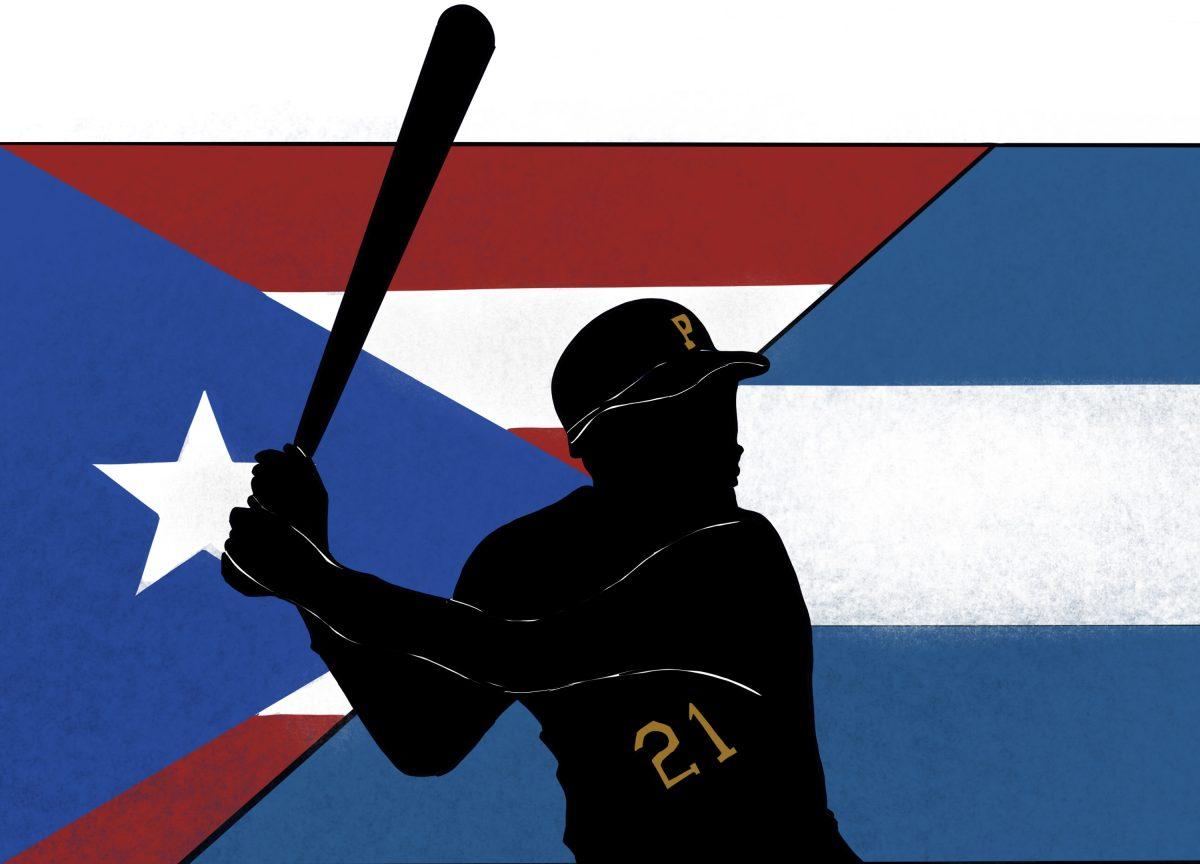Major League Baseball players will gather tomorrow to celebrate the 22nd annual Roberto Clemente Day and it’s time to finally retire his number throughout the league.
Clemente was a Puerto Rican outfielder who spent his entire 18-year career with the Pittsburgh Pirates between1955 and 1972. He was a 15-time All Star, 12-time Gold Glove award winner and a two time World Series champion.
When the Pirates retired his No. 21 in 1973, it sent the message to any future player on the team that they could never fill the hole Clemente left.
He was the very first Latino player to ever join the 3,000 hits club and to be inducted into MLB Hall of Fame.
While Clemente was a super athlete on the field he spent his time off the field in humanitarian efforts. Clemente would offer free baseball clinics to underprivileged children in Puerto Rico.
Three months after Clemente had his 3,000th hit, his life was cut short after his plane crashed off of the coast in his home country while attempting to deliver aid to Nicaragua after a 6.3 magnitude earthquake shook the country’s capital of Managua.
His death sent a shock throughout the world as Clemente was only 38-years-old.
“Pittsburgh lost a heck of a man,” said teammate Willie Stargell in a Jan. 1973 New York Times article. “Clemente’s work with the relief effort was typical. Roberto was always trying to help someone.”
Although he was not the first Latino baseball player in MLB, he was the first to prove that not only he could keep up with his white teammates, but be better than them.
Despite his heroics on the field, Clemente faced adversity off the field as journalists would refer to him as “Bob Clemente” in articles to Americanize his name. Clemente insisted on being referred to Roberto and thought it was disrespectful to his heritage to shorten his name.
Although I never got to watch him play, Clemente is one of my favorite players of all time as his ties hit close to home for me.
My mother was born in Managua, Nicaragua just three years prior to Clemente’s death. When I was able to visit the country for the first time in 2018, many of my cousins would refer to him as their favorite baseball player of all-time.
Growing up watching baseball, many of the players I loved to watch were a majority white as I wasn’t really aware of the important history that Latinos had on baseball.
This year, Nicaragua qualified for the World Baseball Classic for the first time in the country’s history.
As Nicaragua played a game in Miami, a Nicaraguan fan made a sign in Spanish that read, “Today for the first time Nicaragua plays in the WBC and instead of wearing my country’s jersey, I wore the jersey of the great human being, Roberto Clemente.”
On the back the fan wrote, “Nicaragua will always be indebted to you.”
Even though the tournament ended six months ago, I still think about how even though Clemente was not from Nicaragua, his efforts to help the country are appreciated by Nicaraguans to this day.
Clemente opened the door for all Latino baseball players in MLB, there is no Pablo Sandoval hitting 3-home-runs in Game 1 of the 2012 World Series without Clemente.
Today, Hispanics and Latinos make up the second largest demographic among baseball players in MLB with 30.2% according to an April MLB.com article.
MLB has honored Clemente by naming their humanitarian award after him and allowing those who are nominated to have the opportunity to wear his No. 21 on Roberto Clemente Day. In 2021 MLB expanded the rules up by allowing any player to wear the number on the same day as well.
Winners of the award are given a trophy of Clemente and are able to wear a No. 21 patch on the back of their hats for the rest of their careers.
It would be a better way to honor a player who is widely admired throughout the league if MLB retired his number across the league.
The No. 42 is currently the only retired number throughout MLB after the league retired it in 1997 to honor Jackie Robinson. Every season on April 15 every player wears No. 42 to commemorate Robinson’s major league debut.
Although I appreciate the gesture from MLB, it’d be more efficient to just have every player and coach to wear his number tomorrow to celebrate his legacy.
In an April 2019 New York Times article, then Houston Astros shortstop Carlos Correa said in Spanish that no Puerto Rican MLB player will wear Clemente’s number.
“The way I see it: Roberto Clemente is a figure for Latinos just like Jackie Robinson was for African-Americans. Clemente didn’t just break barriers but inspired other Latinos to get into baseball,” Correa said in Spanish in the same article.
In 2016 Puerto Rico retired the number from its winter league all the way down to the youth level.
When asked about the possibility of retiring the No. 21 in an 2016 ESPN Radio interview, MLB commissioner Rob Manfred said that the league honors Clemente’s legacy by naming the league’s humanitarian award after him.
“We do not think that we should have a one size fits all approach to honoring our stars, we think we should tailor the awards to reflect their career,” Manfred said in the same interview.
I’d argue that for an icon such as Clemente there can be two separate awards for him, he can have his number retired throughout the league and have a separate humanitarian award named after him.
After all, MLB named their Rookie of the Year award after Jackie Robinson as well as retiring his number.
If there’s anything that Manfred could do to re-earn my respect as a lifelong baseball fan it would be to retire Clemente’s number.
This would send a message that MLB truly recognizes the greatest Latino baseball player of all time with the utmost respect and honor.









































